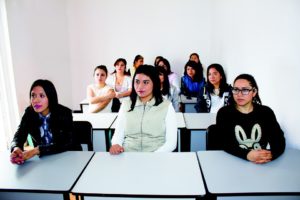College fees can be extremely cumbersome. Even for the wealthiest of parents, once you are putting 2 or more kids through college, the idea of the loans and debts are enough to make anyone feel anxious.
Which is why a new 529 Savings Plans Baby Bonds initiative taken by New York City is an extremely welcome one. Unfortunately, not enough eligible parents know about how the 529 savings plans can be applied to the future education of their child. But what it translates to is how the American government is giving preferential treatment to these 529 plans for 25 years.
The way it works – and it’s working right now in New York City – is that every single kid who attends a public school kindergarten has now been given a college savings account with their first installment from the city…$100. The idea is that by the time they get to college they will have an account of $3,000.
While a four year public college will cost more than $10,000, at least this is a start.
In addition, there was Biden’s pitch for ‘Build Back Better’ Connecticut plan, to increase investments in childcare. Since the challenges of the expense of this are such a heavy burden, this has resulted in keeping many American families faring less well than they should economically.




